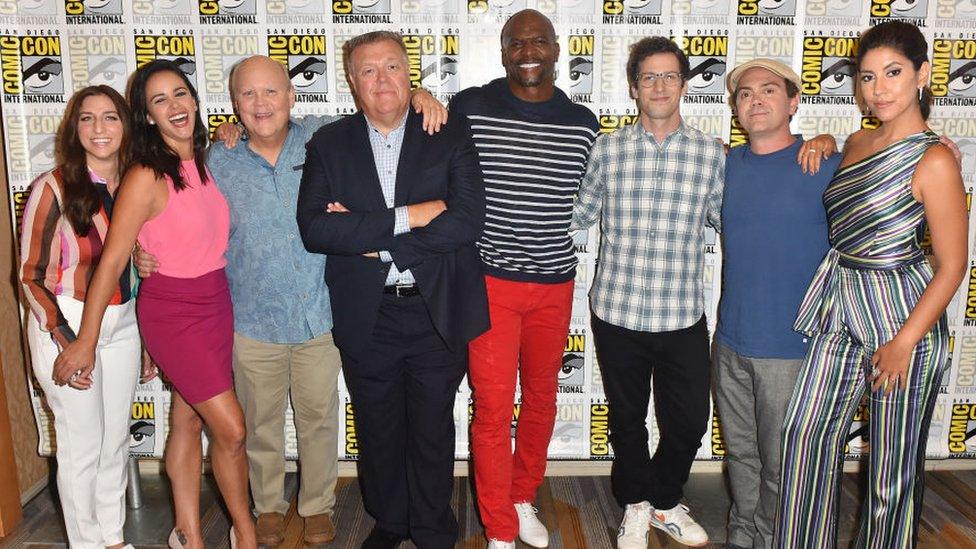Brooklyn Nine-Nine: The end of a 'powerful' and 'relatable' show
- Published

It was bad news for Brooklyn Nine-Nine fans as it was announced the US comedy is coming to an end.
After 153 episodes, the upcoming season eight will be the last for the show, which first aired in 2013.
"I feel very lucky to have worked with this amazing cast and crew for eight seasons," series co-creator Dan Goor said in a statement, external.
"But most of all, I feel lucky that we have had the best fans in the world."
The sitcom, which follows a team of detectives in the New York City Police Department, was initially cancelled by TV channel Fox in 2018
But after outrage among fans and celebrities, it was picked up a day later by rival station NBC.
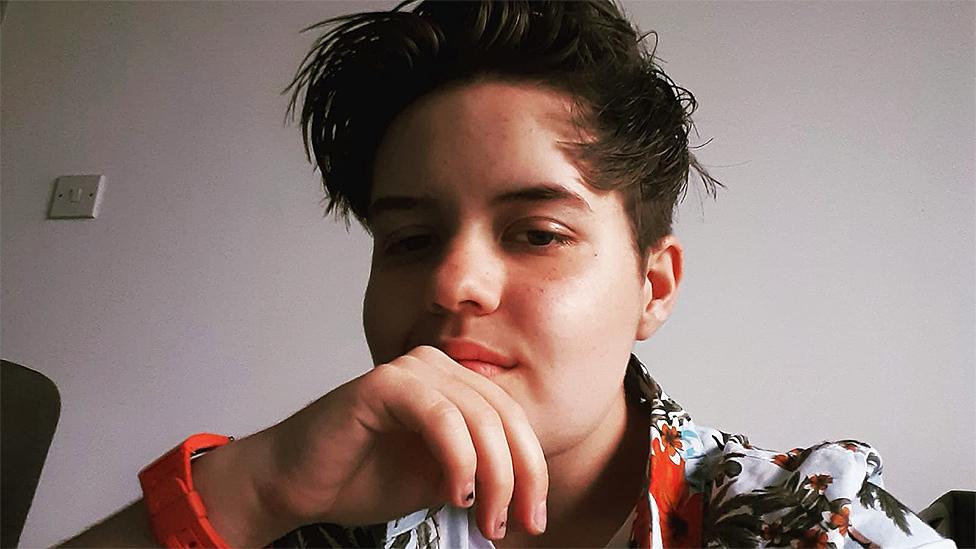
Beckett loves the show because "everyone can find it funny"
Fans like Beckett Seaton-Bailey are "sad" the show is ending, with its diversity being a reason why Brooklyn Nine-Nine is a big deal.
"It's a show that has representation," the 17-year-old tells Radio 1 Newsbeat.
Beckett, who identifies as non-binary and bisexual, says they really connected with the show when one of the main characters, Rosa Diaz (played by Stephanie Beatriz) came out.
"As someone [who is] part of the LGBT community, it was a big thing for people to be seeing in a show they've loved for so many years," they say.
"I just fell in love the second after that moment where she actually came out. And it was a huge thing for me."
The show features a gay, black police captain and a female commissioner, which Beckett says lets people see different perspectives.
Dealing with difficult issues
The racial profiling of Lieutenant Terry Jeffords, played by Terry Crews, is one example of the show not being afraid to tackle tough issues, according to Beckett.
"It's a great way to educate people. And it's so mainstream and likeable that many people were watching it, and people I know have changed their opinion on things."
Rebecca Dixon agrees and praises the show for being "willing to address things in a serious way, while being a comedy".
"It's able to go through to anyone that's watching that there are these issues in society," the 26-year-old from Nottinghamshire tells Newsbeat.
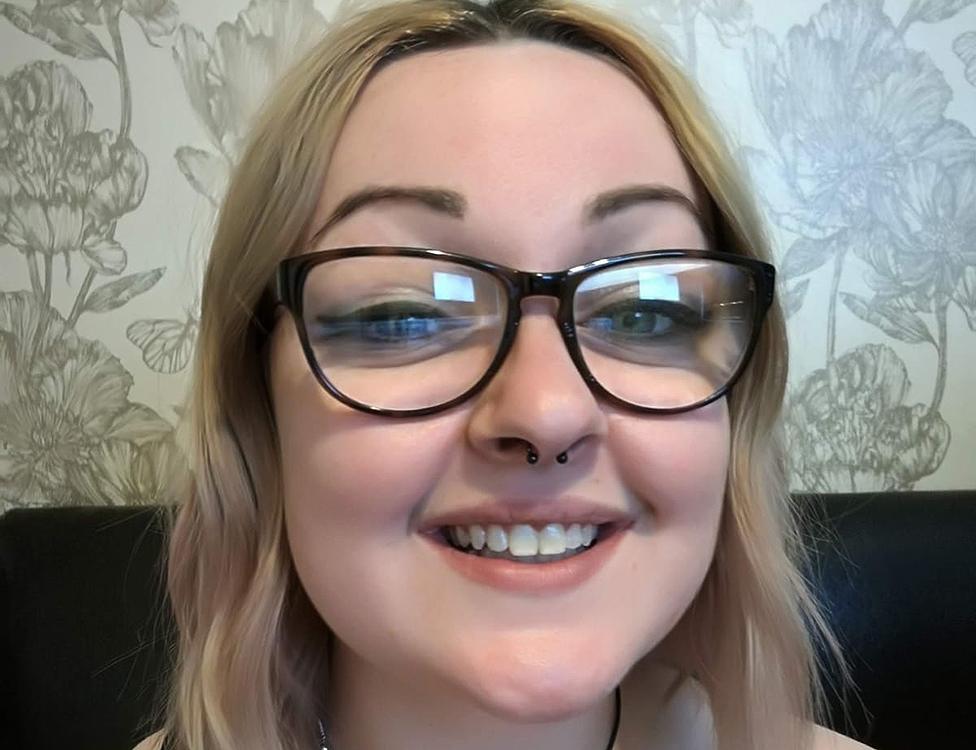
Rebecca was "absolutely shattered" when news of the cancellation came
A powerful moment for Rebecca is an episode in which the show tackles Me Too, where Amy Santiago, played by Melissa Fumero, is fighting for a character that had been sexually assaulted.
"It hits close to home for a lot of females that have had that happen to them."
But the show has been criticised for its friendly portrayal of policing, in light of the Black Lives Matter Protests.
Terry Crews said four new episodes of the police comedy were thrown "in the trash" in the wake of the death of George Floyd.
Co-creator Dan Goor and the cast made a $100,000 (£79,000) donation to the National Bail Fund Network to support "the many people who are protesting police brutality".
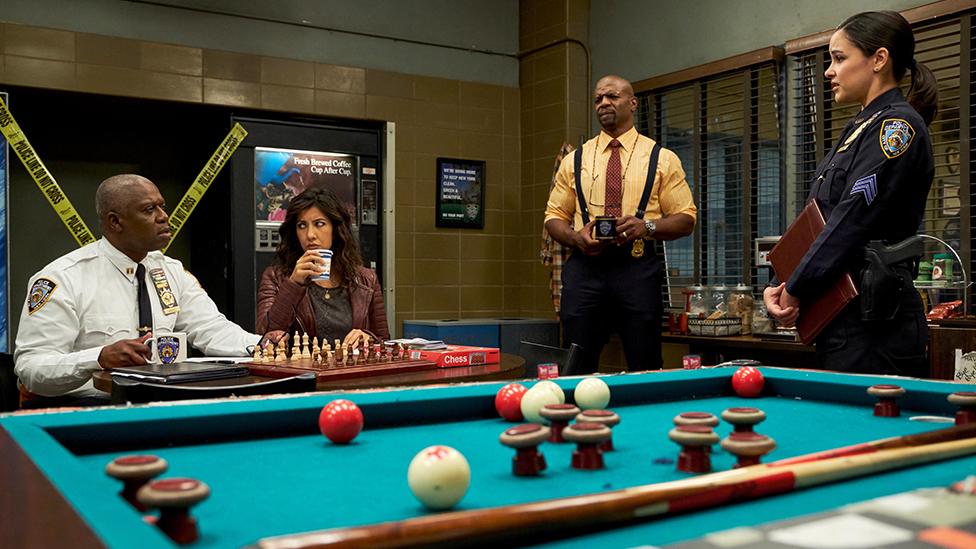
Characters such as Captain Holt (left), Rosa Diaz (centre left), Sergeant Jeffords (centre right) and Amy Santiago have been involved in sensitive storylines
Beckett says it's definitely right that they "took a step back and acknowledged it".
"It's important to make it clear that what you see on the show is fiction and not what is happening with policing in real life."
'The show has positivity'
Beckett hopes the show does come back, but is doubtful if it can be saved again so "it's better to go out with a bang".
"It's a relatable and impactful show, communicating to a wider audience. And it's comical, a show I've grown up with."
For Rebecca, the show evokes different emotions.
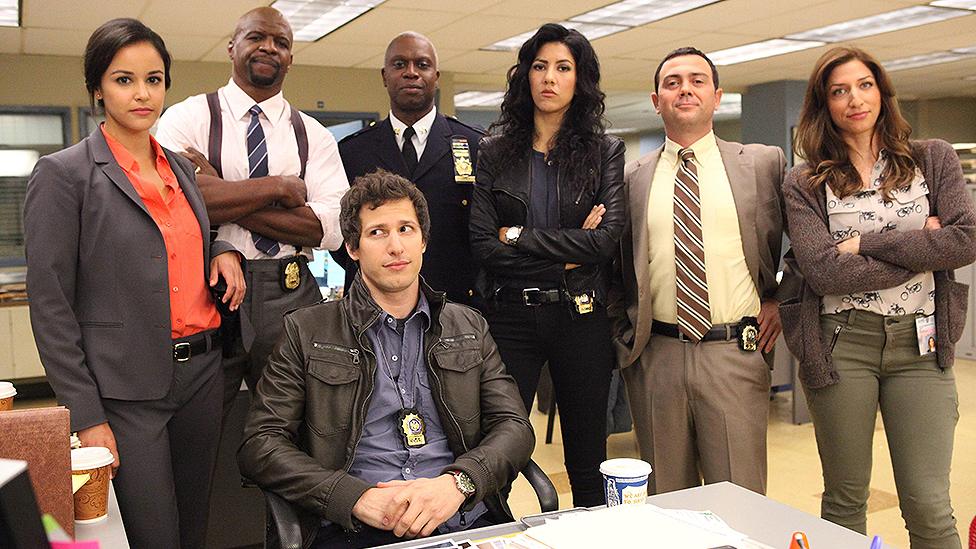
Fans will be hoping the show can be saved again
As a "bit of a softy", Rebecca cried when Jake Peralta, played by Andy Samberg, proposes to Amy during one of the iconic Halloween heist episodes.
But it's perfect escapism and a show that has taught her a lot.
"It takes me to a place where I've got nothing to worry about. If I'm feeling down on it, it's a great show to cheer myself up and a comfort to me.
"It's taught me how different people react to different things. And it reminds you that not everything is as bad as it seems, it has a positivity you can take from it," she adds.


Follow Newsbeat on Instagram, external, Facebook, external, Twitter, external and YouTube, external.
Listen to Newsbeat live at 12:45 and 17:45 weekdays - or listen back here.
- Published12 May 2018
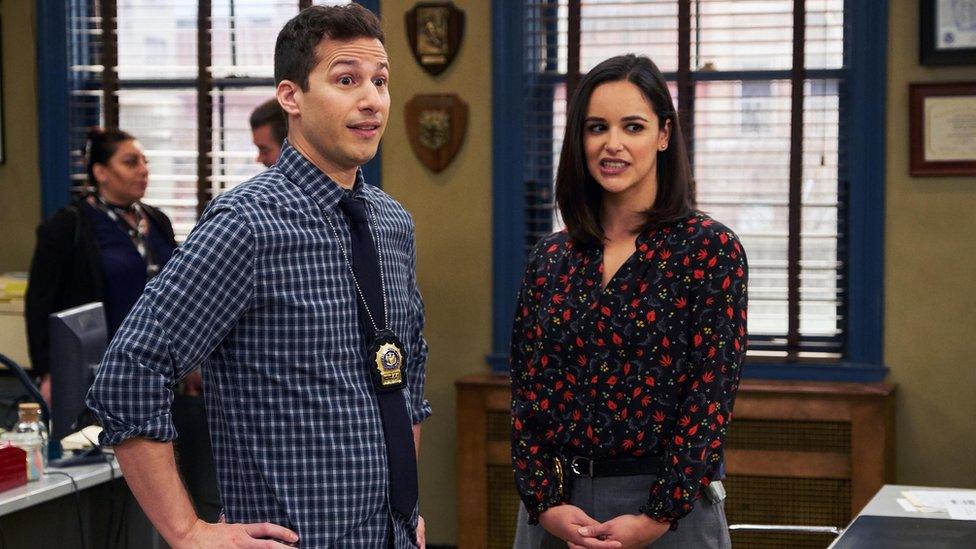
- Published24 June 2020
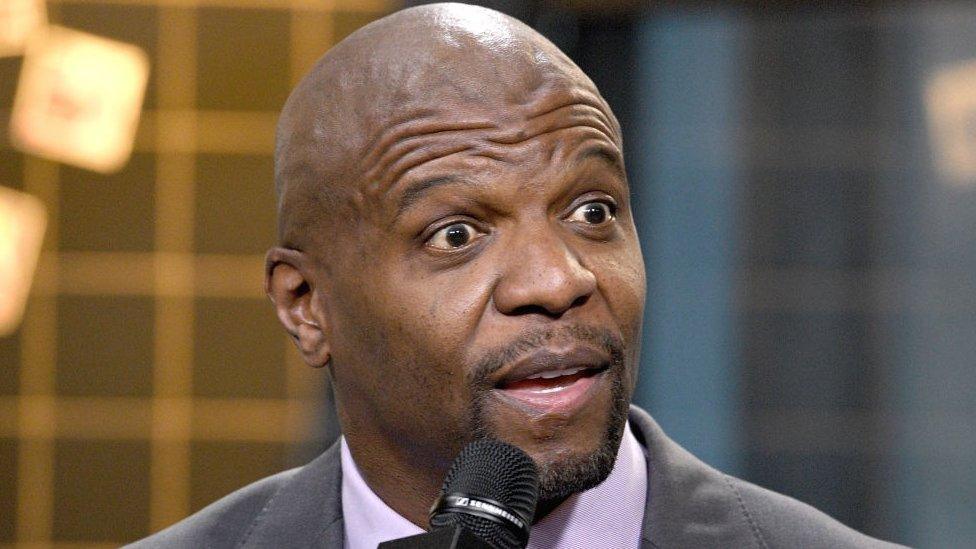
- Published20 July 2018
